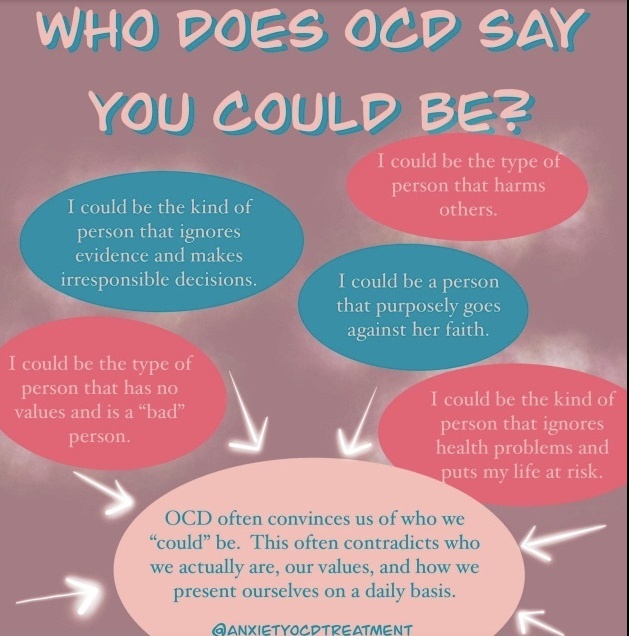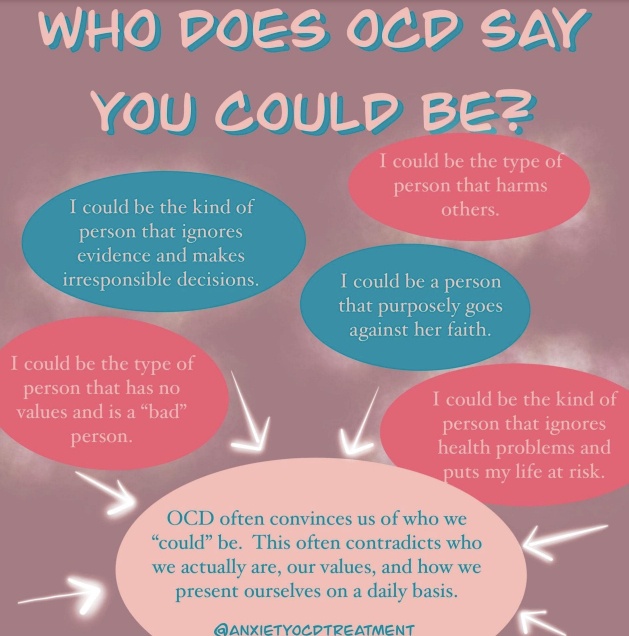Vulnerable Self – Separating OCD’s Doubt from Self

Our society’s view of what OCD looks like is primarily in the stereotypes of excessive hand washing, ordering and arranging and a need for things to be “perfect.” Often people will make jokes or memes of how “OCD” they are when they want things to be clean or a certain way. However, it has been shown that OCD can take the form of a variety of themes – ranging from contamination to harm to scrupulosity.
With as many themes of OCD as there are, it is common for those with OCD to wonder – “Why do I have [insert theme] OCD?” It can feel frustrating especially when an individual’s OCD latches onto a particular value of theirs – such as a mother doubting whether she may hurt her child or an individual doubting whether they are truly in love with their significant other with a relationship OCD. Some may even wonder “Why couldn’t I have contamination OCD rather than harm?”
While the “why” of an individual’s OCD theme is not the focus of treating and managing OCD, it may be helpful to explore to understand someone’s core fear or assist with feelings of guilt/shame surrounding their OCD theme.
Inference-Based CBT (I-CBT) approach to OCD discusses this through the concept of Vulnerable Self. Vulnerable Self is understood as the concept of self that OCD has created doubt around. We all have an ideal version of who we want to be rooted in our own personal values and morals and the reverse exists as well – a feared or “vulnerable” version of ourselves. OCD creates doubt on whether this feared version of self could be real or not.
OCD will take our intrusive thoughts or doubts that may come in the form of “What if’s?” and turn them into statements about our vulnerable self.
The following are examples of doubts latching onto the Vulnerable Self:
“What if I hurt this child?” → “I am a person who could hurt children.”
“What if I am contaminated?” → “I am a person who could be reckless to my own/other’s health.”
“What if I didn’t check the locks?” → “I am a person who could be careless about safety.”
When OCD latches onto the Vulnerable Self, it can create a narrative about who we are as people and if we are protecting our values. OCD convinces us that we could become someone we are not if we don’t take precautions, leading to compulsive behaviors to try and “prevent” ourselves from becoming that person.

(Photo Credit: Anxiety OCD Treatment)
When engaging in Exposure and Response Prevention (ERP) for treatment of OCD, individuals may experience feelings of guilt and shame when tasked with resisting compulsions or leaning into their doubts/fears. They may feel that by not engaging in compulsions that they are “okay with” becoming this feared version of themselves.
It can be helpful that alongside the standardized treatment for OCD, one explores the following:
Self-Compassion: Given the self-doubt that OCD can generate, it can affect one’s self-concept and how they view themselves. Self-compassion encourages an individual to treat themselves with the same compassion as they would give to others. Utilizing self-compassion can assist someone who experiences guilt and shame surrounding their OCD theme rather than engaging in compulsions in order to alleviate those feelings.
Values: When an individual’s OCD latches onto their values, it can feel as if compulsions are a way to protect their values. However, OCD can lead to an individual engaging in avoidance of the things that they value in order to “protect.” Being able to identify what value is being targeted can assist in finding coping strategies that are in line with their values.
Thought Defusion: Because anxiety immediately follows an obsessional doubt, it can be difficult for someone to resist compulsions. Thought defusion allows for the thought to be present while at the same time gives the individual space between their thoughts and behaviors.
If any of the above resonates with you and you would like assistance, please contact us to see how we can help.

Melissa Aristoza is an Associate Clinical Social Worker experienced in providing CBT for individuals dealing with: OCD, Generalized Anxiety, Specific Phobias, Panic, Social Anxiety and Depression. She supports children, teens, families, and adults in navigating through their mental health journey and assisting them in achieving their personal goals.
